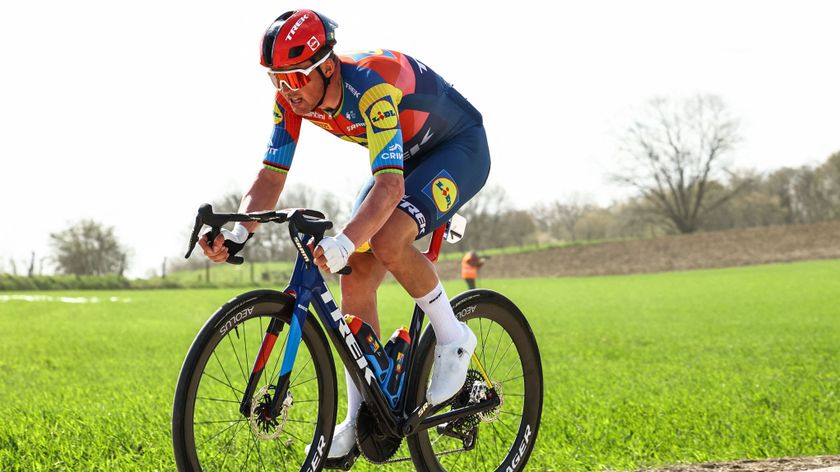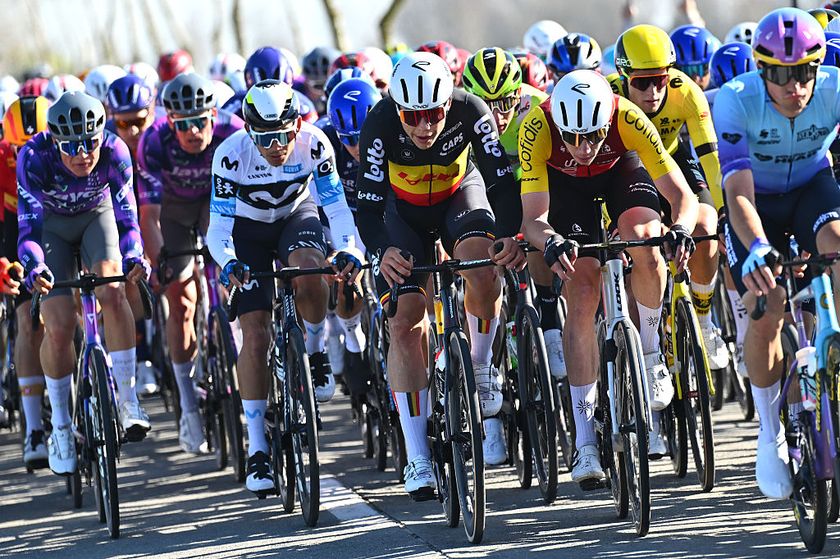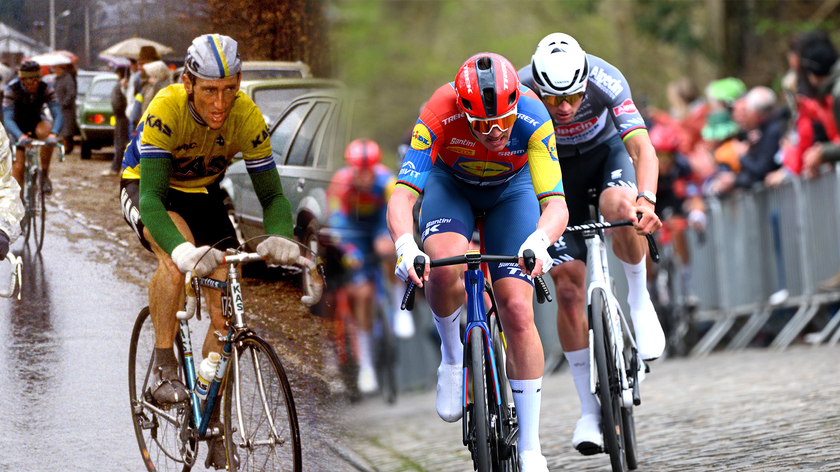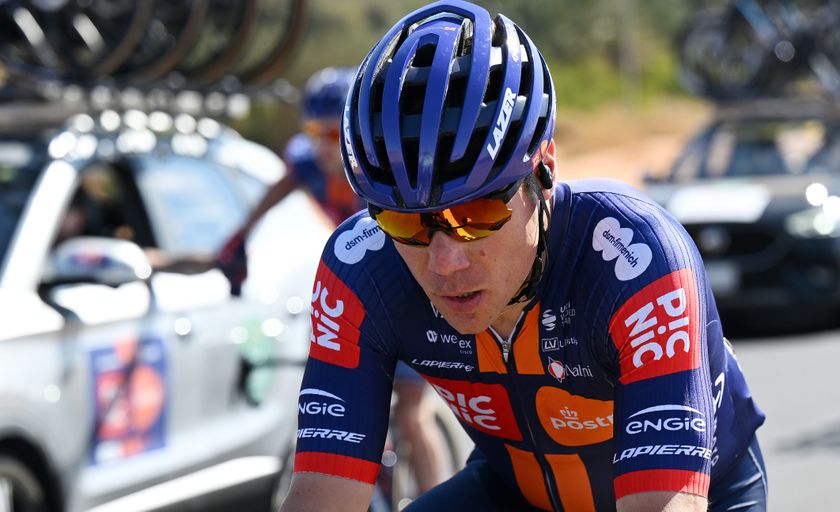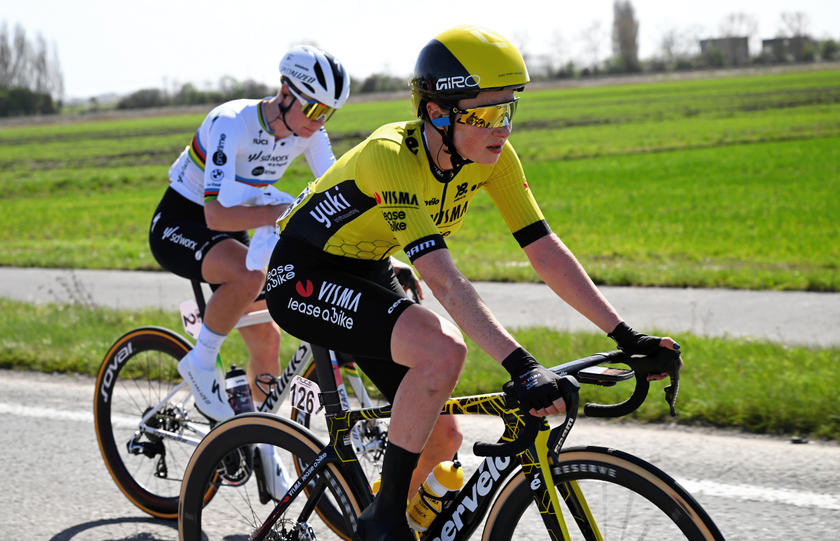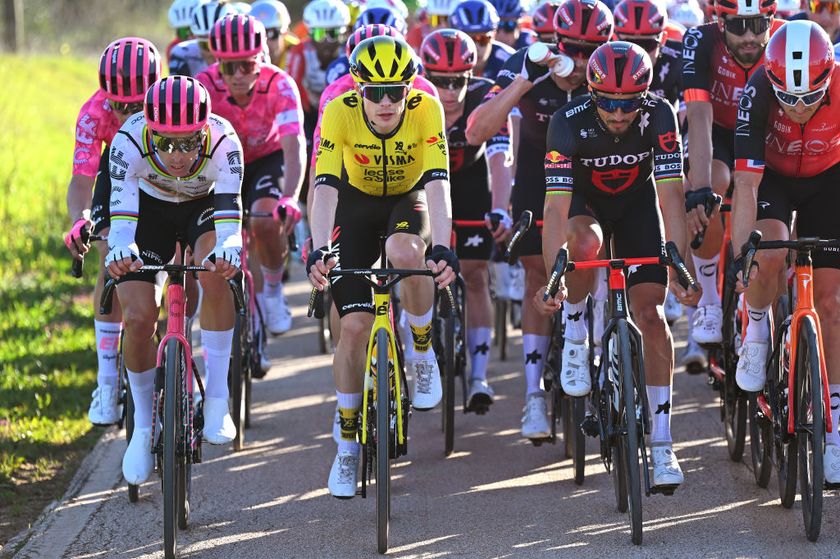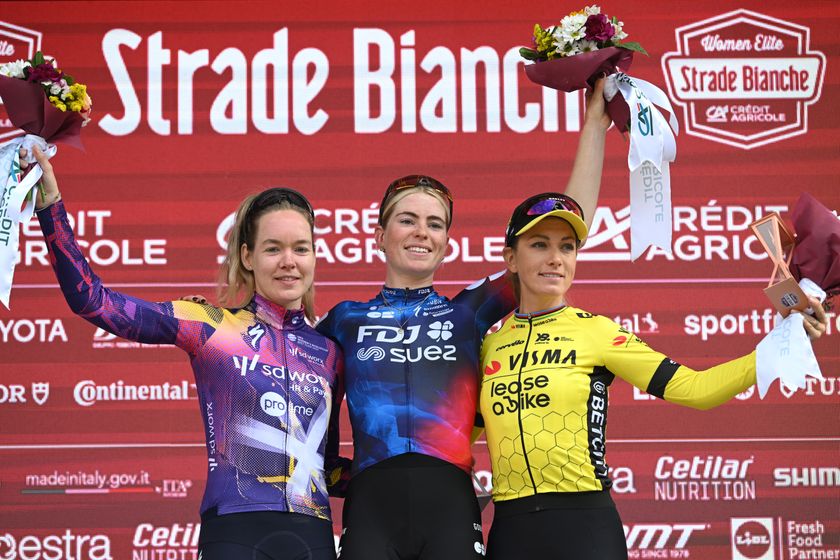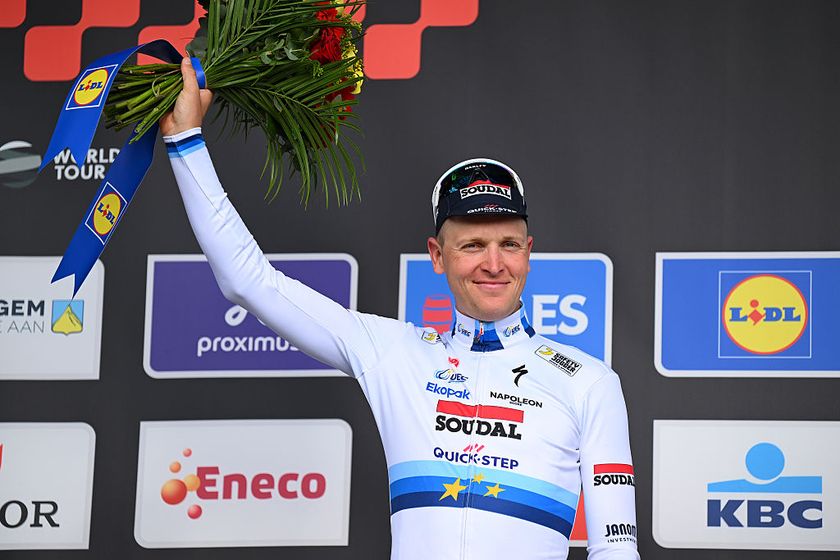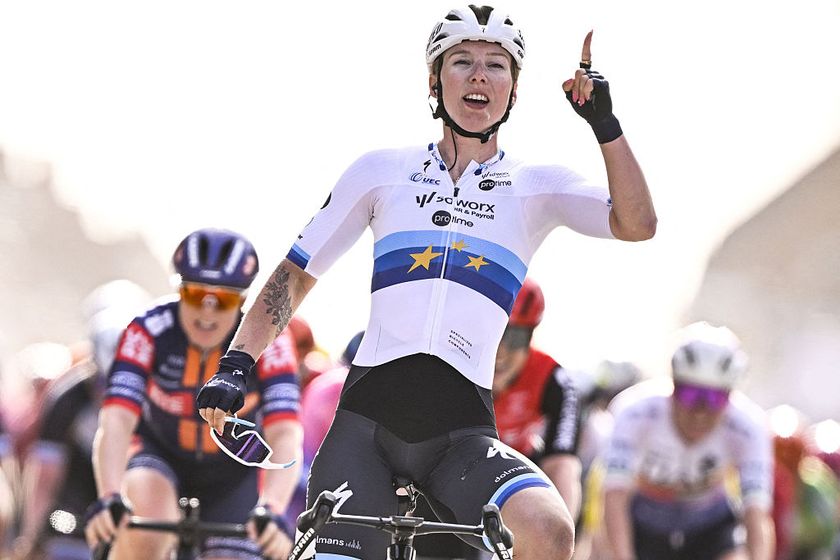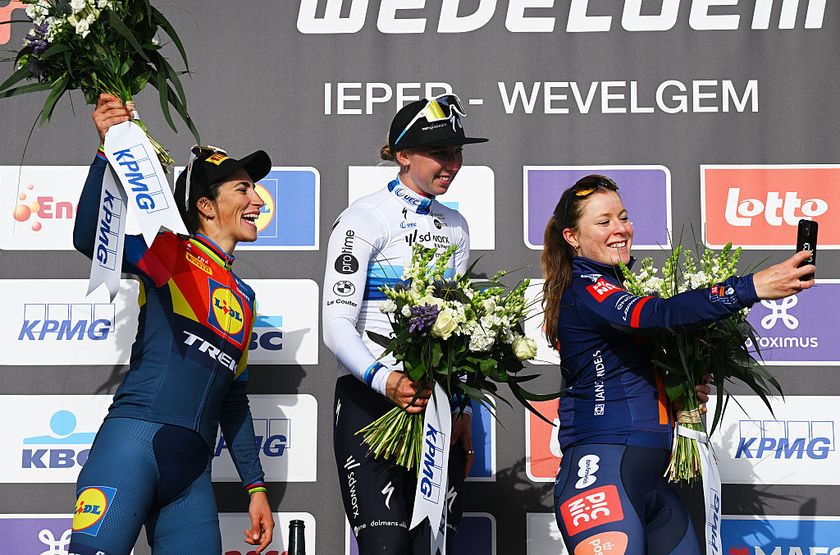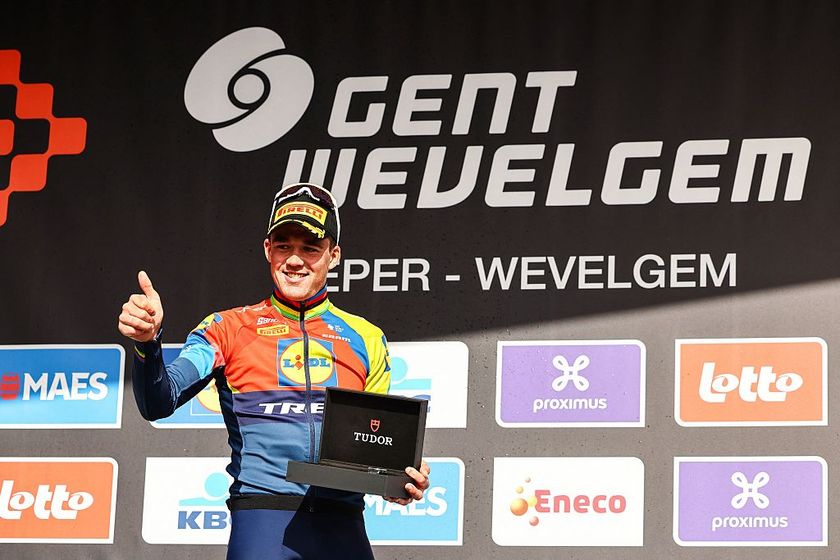Mark Cavendish: I wouldn't be at the Tour de France if I wasn't going to try and sprint
Manxman ready to fight for victory in first sprint finish in Pontivy
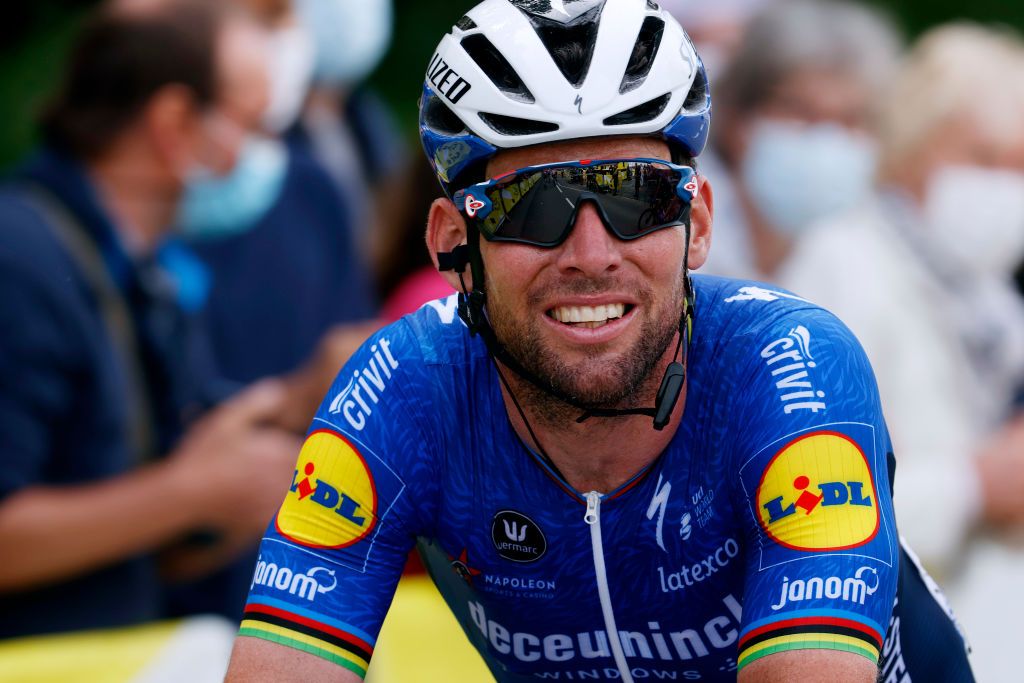
After an intense Tour de France opening weekend with two uphill finishes in Brittany, the sprinters will take centre stage on Monday's third stage to Pontivy, with Mark Cavendish set to return to the fight after a three-year absence from the Tour de France.
Cavendish was a late replacement for Sam Bennett at Deceuninck-Quickstep and is not under pressure to win but true to nature, he told Cyclingnews he will not hold back or hesitate in the long and straight final kilometre in Pontivy and the other sprints.
"I wouldn't be here if I wasn't going to try and sprint," Cavendish said.
"These days riders try to push away expectations but I hate to do that even if I have to sometimes. I'm a racer and will always be a racer, and will always try to win. Nobody can say I don't try at what I do."
Stage 3 represents the first of seven or eight sprint opportunities at this year's Tour de France, with others coming on stage 4 to Fougeres, in Chateauroux on stage 6, where Cavendish won his first Tour de France stage in 2008. Then on stage 10 to Valence, then Nimes on stage 12 and Carcassonne on stage 13, after the Pyrenees to Libourne and then on the Champs Elysees in Paris on stage 21. Of course, the sprinters will have to survive the Alps and then the Pyrenees if they want to contest each section of sprint opportunities.
The 182km third stage starts on the coast in Lorient and covers flat roads for 70km before the more rolling Brittany roads. The intermediate sprint after 118km will offer an amuse-bouche for the fast finish in Pontiny, with the sprint teams and race leader Mathieu van der Poel's Alpecin-Fenix squad expected to diligently control any breakaways.
The final five kilometres dive down to the town, with a bridge crossing the river with 3.5km to go. The finish follows the riverside until 1.5km to go before a sweeping left and then a tighter turn leads into the long finishing straight, with a final kink in the road 130m to go.
Get The Leadout Newsletter
The latest race content, interviews, features, reviews and expert buying guides, direct to your inbox!
Positioning will be vital in the final kilometres, as will be a well-timed lead out in the finishing straight. Cavendish will no doubt be inspired when he looks up and sees the finishing line.
However, he faces some major competition as he tries to win his 31st Tour de France stage. They include Caleb Ewan (Lotto Soudal), Arnaud Démare (Groupama-FDJ), André Greipel (Israel Start-up Nation), Peter Sagan (Bora-Hansgrohe), Nacer Bouhanni (Arkéa Samsic), Sonny Colbrelli (Bahrain Victorious) and Bryan Coquard (B&B Hotels), plus the likes of Van der Poel, Tim Merlier and Jasper Philipsen (Alpecin-Fenix), Wout van Aert (Jumbo-Visma) and Mads Pedersen (Trek-Segafredo).
Deceuninck-QuickStep will also have to protect Julian Alaphilippe but Cavendish can count on Michael Mørkøv as his lead-out man and a well-oiled and well-drilled team for the sprints.
"I've got the best lead-out man on the planet in Michael," Cavendish said proudly.
"I've got an opportunity to race the Tour with Deceuninck-QuickStep and that makes it something special. We're a real team off the bike, too, and I'm just happy to pull on this jersey. If I'm collecting bottles or to make people laugh, I'm just honoured to be at the Tour de France."
Cavendish last rode the Tour de France in 2018 but finished outside the time limit on the tough mountain stage to La Rosière. He could have climbed off like several sprinters did but proudly rode to the finish, even if he failed to make the time cut.
He last won a sprint in 2016 when won the first stage in Normandy and pulled on the leader's yellow jersey in his first season with Dimension Data and then took three other wins.
Several bouts of the Epstein Barr syndrome and growing tension with the African team meant he suffered and won little in 2017 and 2018, with their relationship ending bitterly after the 2019 season.
His career seemed to be over after the 2020 season Bahrain-McLaren but he secured a late place at Deceuninck-QuickStep thanks to some personal backers and thanks to his special relationship with team manager Patrick Lefevere.
Cavendish just wanted to race and be happy, never really expecting to ride the Tour de France. Everything changed after his four wins at the Tour of Turkey and then he stepped in when Sam Bennett was struck by a knee injury in the weeks before the Tour.
It was like he had found a golden ticket to visit Willy Wonka's Chocolate factory. His problems all appear to be in the past, his smile and happiness are back, mixed with a touch of realism of the task ahead and his chances of victory.
"It's incredible to be back and I'd be lying if I said it wasn't emotional," he said, wearing his heart on his sleeve.
"People have had a lot more problems in life than I've had, especially recently, I know that. But what I had to come through made me realise what is important in life and why I do the things I do.
"I've never taken the Tour de France for granted. The Tour de France is special, it's the biggest race in cycling but also one of the biggest sporting events in the world. Every kid who sits on a bike dreams of riding the Tour de France. That never changes, however old you get.
"It was my dream to ride the Tour as a kid and has been my life for 15 years. That won't change. I've always enjoyed the Tour and always will if I win a sprint or not."

Stephen is one of the most experienced member of the Cyclingnews team, having reported on professional cycling since 1994. He has been Head of News at Cyclingnews since 2022, before which he held the position of European editor since 2012 and previously worked for Reuters, Shift Active Media, and CyclingWeekly, among other publications.
